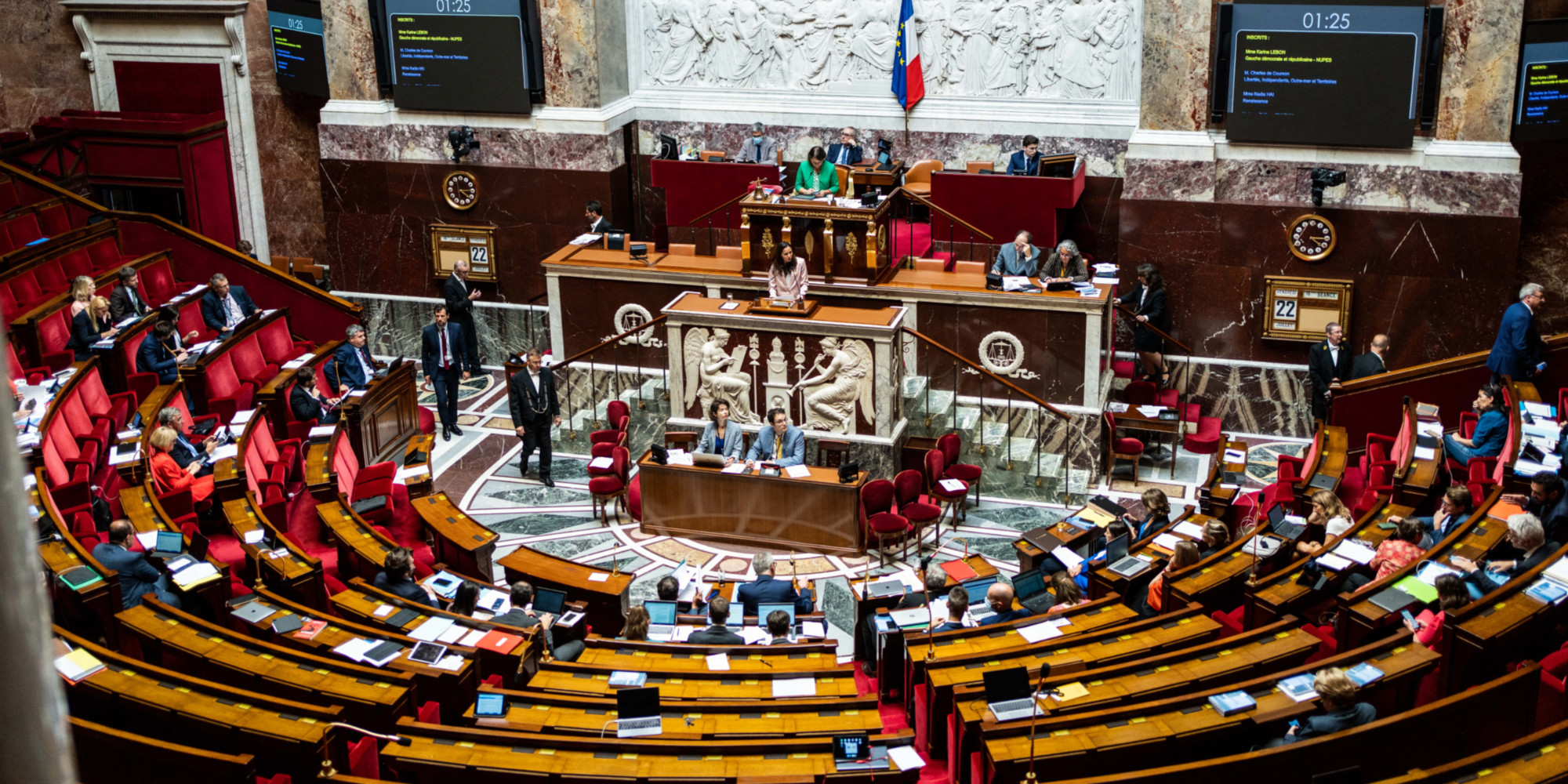Europe 1 with AFP 3:42 p.m., August 05, 2022
The new National Assembly, born of the legislative elections of June 12 and 19, 2022, got off to a flying start with sometimes heated debates and legislation passed.
Several novelties also marked this beginning of the legislature with in particular the election, for the first time, of a woman to the perch.
Arrival en masse at the end of June of the RN and Nupes troops, a first woman at the Perchoir, texts of laws voted after jousts until the early morning... The new National Assembly, where the macronists lost the absolute majority, started in no charge.
A look back at five events that marked the start of this legislature.
The oppositions arrive in force
After the "slap" of the June legislative elections, the macronists, who have melted from 345 to 250 deputies, are bitter and worried.
They see landing at the Palais Bourbon some 150 elected members of the alliance of the left Nupes, including the mélenchonistes carriers of "popular anger", who promise to be "offensive".
In terms of form, these deputies are shaking up the codes, multiplying on social networks and less willingly wearing ties and suits, which bristles some colleagues.
On the other side, the finalist of the presidential election, Marine Le Pen, constitutes the largest far-right group in all of France's history, with 89 deputies.
They access key positions in the institution, display their "seriousness" and play the contrast with the "circus" imputed to the Nupes or the "melon" reproached to the majority.
women in power
"How long and winding is the path to equality between men and women": at 51, the deputy of Yvelines Yaël Braun-Pivet, still a novice in politics in 2017, goes up to the Perchoir on June 28.
For the first time in the country, a woman is elected President of the National Assembly.
Unpublished fact: a woman also occupies Matignon, Elisabeth Borne, and another the head of the majority group LREM (renamed Renaissance), Aurore Bergé.
In addition, Marine Le Pen heads the RN group, and Mathilde Panot the LFI group.
A tense atmosphere
The first stormy session for the Prime Minister takes place on July 6.
Elisabeth Borne calls on the deputies to "build together" "compromises" to respond to economic or climatic challenges during a declaration of general policy on which she does not ask for a vote of confidence.
LFI and RN officials pinpoint a "leak" and a "provocation".
The Nupes defends in vain a few days after a motion of censure, presented rather as a "motion of no confidence".
A few Socialists defected, illustrating line divisions on the left.
Neither the RN group nor LR, which wants to judge the action of the new government on parts, vote for the motion.
The night of the sanitary pass
The night of July 12 to 13 marks a first setback for the government.
The coalition oppositions delete a key article from the first bill on the menu, which scheduled a possible return of the anti-Covid health pass on entry into France.
"I will fight so that the spirit of responsibility prevails in the Senate", assures the head of government.
But the executive must fall back.
The text finally adopted at the end of July provides for the simple possibility of imposing a negative Covid screening test on boarding towards French territory and for overseas trips.
It was the right-wing dominated Senate that imposed its views.
The forceps purchasing power package
The subject was at the heart of the last elections, and the battle resumed even more fiercely in the hemicycle, for a three-week marathon with votes until 4 or 6 a.m. sometimes.
At stake, 20 billion in expenses for an increase in pensions and allowances, or the continuation of the fuel discount.
The left holds the trench to claim more than "crumbs", and to oppose the vision deemed "liberal" of the government.
The elected RNs oscillate between votes for and abstention.
The Minister of the Economy Bruno Le Maire spares no effort, and the two sections of measures are validated by means of compromises made with the LRs, who have become privileged partners.
The majority note that a "new collective culture" is under construction, in a new era where Parliament is no longer a "registration chamber".

